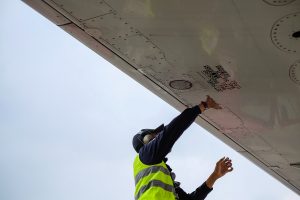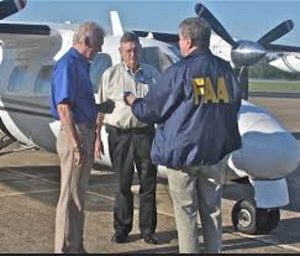A mechanic who holds an inspection authorization (“IA“) recently asked me whether he could perform inspections both at his home base here in Texas and also at his home in Minnesota where he escapes the sometimes scorching heat of Texas summers. The mechanic knew that the IA issued by the FAA does not contain any specific geographic limitations and, as a result, the mechanic thought the answer to the question should be “anywhere in the U.S.” Well, the mechanic was right, sort of.
Requirements For Obtaining An IA
In order answer to the question, a little background is in order. As you may know, under 14 C.F.R. § 65.95 a mechanic must hold an IA in order to
-
Inspect and approve for return to service any aircraft or related part or appliance (except any aircraft maintained in accordance with a continuous airworthiness program under 14 C.F.R. Part 121) after a major repair or major alteration to it in accordance with 14 C.F.R. Part 43, if the work was done in accordance with technical data approved by the Administrator; and
-
Perform an annual, or perform or supervise a progressive inspection according to 14 C.F.R. §§ 43.13 and 43.15.
A mechanic who wants to obtain an IA must apply to his or her local Flight Standards Office (“FSO”) and meet the requirements of 14 C.F.R. § 65.91. In addition to having the appropriate experience, equipment, facilities and data, as well as passing a knowledge test, the mechanic must also have a fixed base of operation.
This base allows the local FSO to locate the mechanic, either in person or via telephone, but it isn’t necessarily the location at which the mechanic will be exercising his or her inspection authority. Once issued, the IA expires March 31 of each odd-numbered year and also ceases to be effective if:
-
The authorization is surrendered, suspended, or revoked;
-
The mechanic fails to meet the renewal requirements of 14. C.F.R. § 65.91(c)(1) through (4) (e.g. the mechanic no longer has a fixed base of operation, the equipment, facilities, or inspection data); or
-
The mechanic fails to meet the first year’s activity requirements as described in 14. C.F.R. § 65.93(a)(1) through (5).


 As you can see, this language doesn’t expressly prevent a mechanic with an IA from exercising inspection authority in any geographic location. However, if a mechanic wants to exercise inspection authority somewhere other than his or her fixed base of operation, and by so doing changes his or her fixed base of operation, then the mechanic needs to provide notice to the FAA office responsible for that new area before exercising inspection authority (most likely the local FSO).
As you can see, this language doesn’t expressly prevent a mechanic with an IA from exercising inspection authority in any geographic location. However, if a mechanic wants to exercise inspection authority somewhere other than his or her fixed base of operation, and by so doing changes his or her fixed base of operation, then the mechanic needs to provide notice to the FAA office responsible for that new area before exercising inspection authority (most likely the local FSO).
